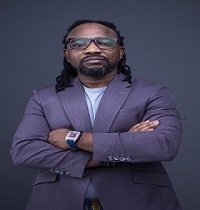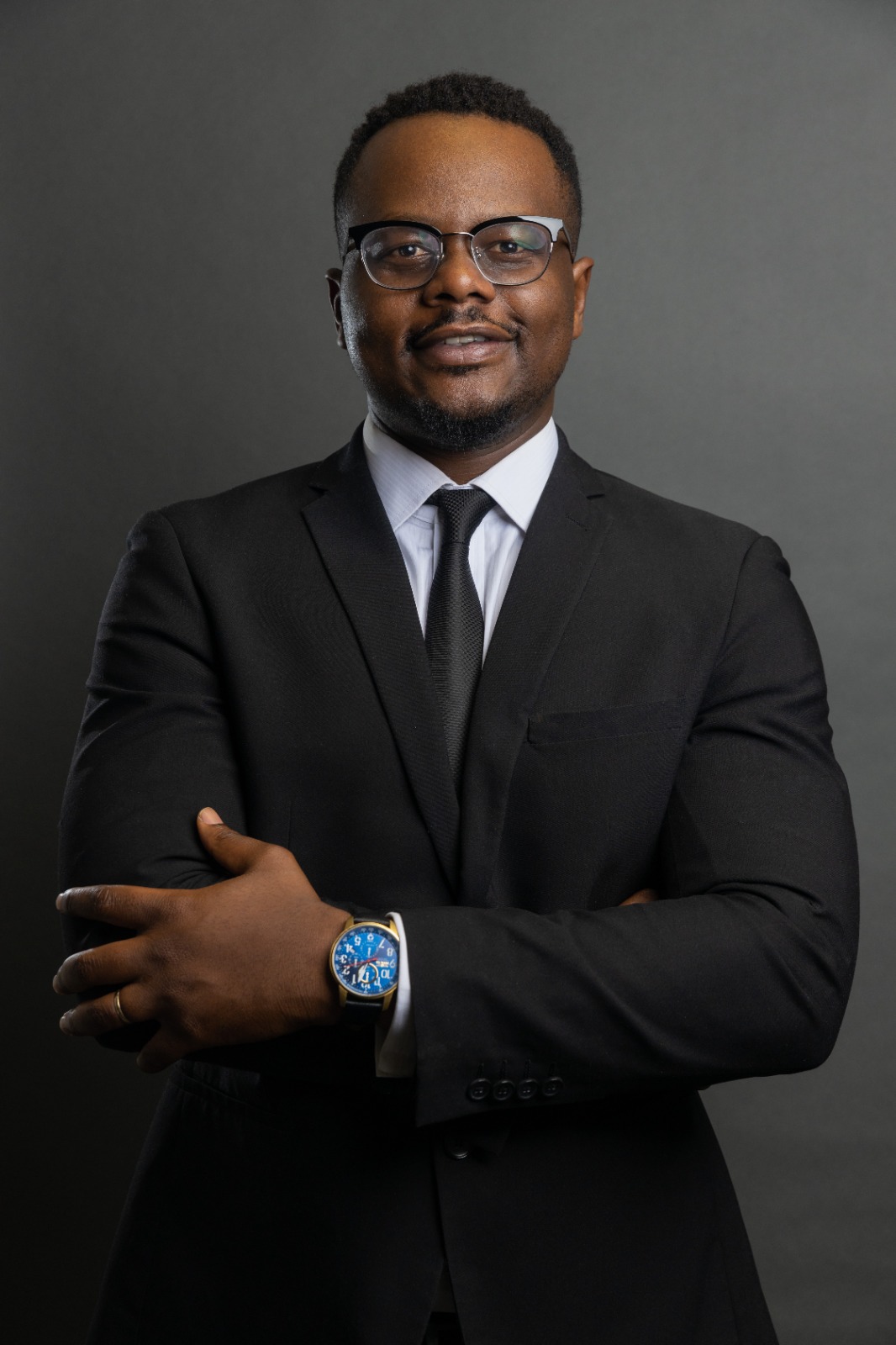By Kasim Bakare
Creativity, as a key product of human culture and a tool for enriching culture, has an excitingly intimate relationship with culture. Interestingly, creativity involves a variety of creative processes and operates on a set of existing representations, concepts, objects, symbols, rules, or notions.
Perhaps because of modernism and certain economic exigencies, certain stereotypes have held forth in downplaying the need for cultural awareness and understanding in telling true and authentic stories in specific climes. In the Nigerian creative space, creating a balance between mordenism and telling culturally creative & sensitive stories has been a herculean task for creative experts
Nevertheless, highly professional creative experts who know their onions often live up to the core essence of professionalism, telling culturally sensitive stories while delivering value for their clients.
One of such creative professionals is Olalekan Akinyele, a highly cerebral creative wizhkid, who was recently appointed the Creative Director at foremost marketing and creative agency, 7even Interactive.
In an exclusive interview with MARKETING EDGE, Olalekan noted that the diversity of a multi-ethnic country like Nigeria requires practicing and would-be practitioners in the creative industry to understand its cultural and historical nuances to tell culturally sensitive stories.
In Olalekan’s words, “Nigeria being a multicultural society has lots of ethnic tribes, languages, religions that are piercing through the multifaceted sides of our society. As a regulatory body, APCON is doing enough to ensure that creative works meet certain standards. For instance, APCON requires anyone that intends to practice the trade(advertising) to have certain certification. Right there and then, you would be made to understand the kind of materials that you can churn out in certain regions of the country. That being said, I do think that Nigeria needs to have a unified vision and messaging that unifies the entire tribes and parts of the country. That way, you can then be certain of what we can stay on or use in certain parts of the country.
He continued: “If you look at England, for example, there are different tribes in that country also but they do have a unified language. But here, we just say we have a unified language but most times because we want to speak to the core of a particular tribe, you have to go the way of the local language. We can by the fact that technology brought internet, social media and then think we can communicate in the same manner Creative people need to do a lot of research and background check and learn more about history. That will greatly help us. The major reason we are not culturally telling our stories is because we have lost that sense of history for a long time. If we can go back and begin to learn how we came to be in the first place, how each region came to be, from the Oyo empire story in the South west, then to the North and learn the stories of the, Elkanemi, the Sokoto caliphate and then to the East to learn their history. We must be deliberate in learning those histories. There is a whole lot that we can take from those histories and then use in selling culturally relevant stories that can portray the country in better light”.
Giving further insights on how thought leaders in the creative industry can inspire and mentor young creative talents to be more professional and sensitive in churning out creative works, the versatile creative noted that it requires a lot of deliberate efforts on the industry leaders and the young creative talents to ensure professionalism and tutelage
“It’s really a problem in the industry because some of the leaders in the industry connecting this young people usually face certain challenges in teaching them and putting them through. Sometimes, these young guys, even when they come around, some of them are not even open-minded enough to learning. We have to be deliberate either as a creative leaders or young creatives trying to enter into the industry. We must be deliberate about learning the craft itself, learn how the craft is done. Whether we like it or not, we need to start passing knowledge to younger people who are more flexible these days, who are more creative.
Commenting on how creative experts can deliver culturally sensitive stories through their creative works while adding value to brands especially in a modern and globalized world, he said:
“We can’t be too carried away with modernism and ignore where we are coming from. If we ignore where we are coming from, how do we get to where we are going to? That sense of history is the most important thing that creative people needs to start learning and having. If you ask any young creative person, today, most young people, I mean very young, ask them whether they know anyone in the industry that actually set the pace for the industry to really thrive, they would barely give you names. So, I think a sense of history, being deliberate about learning our culture, places within the country are very important for us to be able to push our stories forward
Speaking on how the digital revolution has evoked conversations on the threat of digital advertising to traditional advertising, the creative expert stressed the huge potentials of digital advertising. Olalekan, while agreeing with the prospects and efficacy of digital advertising noted that traditional advertising still has a role to play despite the digital revolution.
“Digital advertising has come to say. Everybody can see that clearly. Covid-19 made that open and more apparent. Advertising is always going to be advertising. Advertising, basically, is how you make you make your sales. It can come in many ways. Initially, when it started, advertising started with gongs, people going to the market square with gongs, putting information about the wares out there in the market. Thereafter, we started moving to newspaper prints, television, outdoor and as time went on and technology and innovation kept improving. It only keeps getting better. Everything has to be enabled with technology these days. You have to automate how operations are done. The earlier we start training people towards that, in order to deliver value for the client, the better. Now, before anybody sees an ad on TV, they probably have seen it on their mobile phone or some device.
He continued:“I think the only reason why people will stay glued to their TVs these days is probably because of shows like Big Brother Naija or probably because a football season has started. Majorly, the phone is where I get most of my information these days. Those channels or platforms are avenues in which one can be advertised to. The earlier we start noticing those behaviours; how people consume data, content and other stuffs, the better for us to be able to market to them or advertise to them. The truth is that many marketing activities are mostly on digital now. But again, that does not mean that, some other people still don’t use the traditional advertising especially in some rural areas where Radio and TV in some cases are still very efficient. You can’t ignore them totally but it is reducing why digital is also rising.”
Commenting on a recent conversation organized by APCON to highlight the future and security of marketing communication jobs as a result of Artificial Intelligence(AI), Olalekan posited that though the country has not fully deployed the use of AI, the advertising industry needs to equip its practitioners with such skills when it fully goes full swing.
“Artificial Intelligence is a part of machine learning. Basically, what that means is that you have a machine that can process data in the speed of light and then make decisions based on the data it has. Based on Algorithms, they can easily find patterns and then create patterns. You get data and you can use it to predict consumer behavior or what have you. The way it works is if you have filled a particular machine with data, for instance, as a copywriter, you have fed a machine with a style of writing for many years, the machine can easily pick the pattern of how you write and then based on having access to all other data and a speed of processing data, can pick other patterns and then generate office in your style or in better ways than you actually do.
I think we have not gotten to that point in this market even though we are getting there. But I think creative humans, like copywriters, art directors, creative designers and the likes would still be here for a long time. The threat that I actually see is that we have a bunch of lazy thinkers who don’t go deep down to find or express ideas and come up with amazing expression of arts. It has to do with doggedness, rigorous thinking, critical thinking, lateral thinking and the likes.
“I see a lot of creativity these days, though not in advertising. People are making more skits and there is a whole lot going on. Again, what advertising does is that advertising helps you to be a good craft person. Technology has come to disrupt the industry itself and the advertising practitioners need to start shifting towards that direction data powers the ideas and technology enables these ideas to come to life”.
Asked to comment on the future of the creative industry in Nigeria, Olalekan suggests a synergy and collaboration between the industry and the establishment to deliver a bright future for the industry.
”The future for the creative industry is a bright one. We just need to be in alignment with the government so that we can ensure that the industry and the government are moving in the same direction. This will ensure that the powers are better harnessed and we will achieve a better goal.
He stressed further: “I think we need to go back to learning some craftsmanship and then use technology to see how we can make it better. I also think the earlier we see it as an avenue to generate revenue and wealth for the country, to improve the standard of living and the quality of lives of people, the better for us to focus deliberately on the industry. Through that, we can come up with indigenous and innovative products, services that we can export. We can literarily use creativity to come out of all the problems we have today”.
In a similar vein, Olalekan also expressed his views on the challenges and expectations in his new role as the creative Director at 7even Interactive.
”Basically, not much, apart from trying to re-structure the team, direct the agency in a more profitable direction. I would also ensure that the clients we serve have quality service in terms of the creative output. I know challenges are quite different from where I have worked before but I think I am up to the task to surmount the present task and challenges”.







Comment
No comments found.